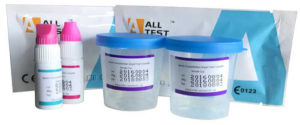New research suggests that regularly eating nuts could potentially help enhance fertility in men. A systematic review and meta-analysis published in Advances in Nutrition looked at existing studies on nut consumption among men and its impact on sperm quality.
The review included two randomised controlled trials involving healthy men between ages 18-35 who ate at least 60 grams of various types of nuts per day, in addition to their normal Western-style diets. The men were not making any other lifestyle or dietary changes. Across both RCTs, involving 223 total participants, those eating daily nuts were found to have improved sperm quality. One trial had men eating 75 grams of shelled walnuts over 12 weeks. The other had participants eating 30 grams of walnuts, 15 grams of almonds and 15 grams of hazelnuts daily for 14 weeks. The control groups followed matched diets, minus the nuts.
While the review could not prove definitively that nuts caused the improvement in sperm quality, statistical analyses were able to adjust for other health and lifestyle factors between groups. This suggests nuts may have had an independent beneficial effect.
The authors hypothesise the nutrients in nuts – including omega-3 fats, fibre, antioxidants, vitamins and minerals – could support reproductive health. They advocate for additional research, especially studies among women. Currently there are no published RCTs looking specifically at the impact of nut consumption on female fertility.
Infertility, clinically defined as no pregnancy after 12 months of regular, unprotected sex, affects 8%-12% of reproductive age couples globally. Improving preconception health through dietary changes like eating more nuts could potentially help some of these couples struggling to conceive.
The study’s lead author, Dr. Barbara Cardoso from Monash University Department of Nutrition, Dietetics and Food, said the findings suggest simply adding nuts to one’s diet may benefit fertility without requiring other major lifestyle modifications. Participants were not following rigid healthy diets apart from the extra nuts.
She also notes while specific nuts were used in these studies, other types would likely have similar effects. The only caveat is avoiding nuts in those with allergies. People did not need to eat fancy, altered versions of nuts – plain roasted nuts without salt or sugar were used.
The research team says eating 1-2 handfuls or 60-75 grams of nuts daily is enough to see sperm benefits. It’s easy to incorporate that amount without overdoing calories or weight gain. Despite some stigma around nuts being fattening, data actually shows regular nut eaters tend to be leaner than non-nut eaters. Nuts contain healthier fats, fibre, and other beneficial nutrients.
While these initial studies focused on men, the researchers also published a recent review suggesting the Mediterranean-style diet, which includes nuts, may increase likelihood of clinical pregnancy and live birth for women doing IVF. Senior author Dr. Nicole Kellow states nuts are just one component of the diet that could support reproductive health.
The authors conclude by emphasising a need for more research on how nuts might affect fertility in both men and women. For now, their results suggest incorporating a daily serving of mixed nuts may be an easy way for men in particular to try improving sperm health when trying to conceive.
The Convenience of DIY Male Fertility Tests
Knowing whether or not you’re fertile can impact major life decisions like starting a family. Typically, fertility testing requires making appointments, going to a clinic, and waiting for results. However, at-home sperm concentration test kits empower men to easily and privately check their fertility whenever they want.
The Zoom Baby Male Fertility Test Kit allows men to test sperm concentration from the convenience of home. The test takes just 5 minutes to complete and gives results showing if sperm concentration is above or below 15 million sperm per mL. While not a guarantee of fertility, this helps identify if additional medical testing may be warranted.
Benefits of At-Home Testing
Using an at-home sperm test kit has many advantages:
- Convenience – Testing can be done in the privacy of your own home without scheduling appointments. Results are available in minutes.
- Affordability – These test kits cost a fraction compared to traditional semen analysis at a doctor’s office or lab. This makes frequent re-testing affordable if needed.
- Privacy – For many, fertility is a sensitive personal matter. Home testing allows men to check fertility status discreetly.
- Immediacy – Knowing your fertility status quickly allows you to make more informed choices about trying to conceive or pursuing treatment if needed.
- Ease of Repeat Testing – Men can easily re-test over time to identify any changes. This helps monitor conditions like varicoceles that can impact sperm production.
While at-home test results aren’t definitive, they offer an accessible way for men to understand their basic fertility levels. If sperm concentration comes back low, the next step would be to pursue professional medical fertility testing. Nonetheless, home kits let men quickly screen for potential issues.
Photo by Marcos Paulo Prado on Unsplash
Zoom Baby is a leading supplier of Pregnancy Tests and Ovulation Test Kits






